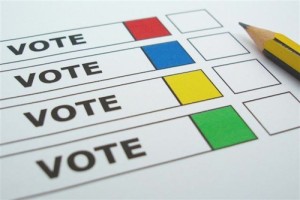Sunday Poll: How Should Illinois Increase Revenue To Fund Road Maintenance?

Due to budget issues Illinois has been delaying road maintenance for many years, an issue in the current race for Governor. The following, from a 2016 article, explains the options as outlined by the Metropolitan Planning Council (MPC):
GAS TAX
The MPC argues the state will need to raise $2.7 billion a year, half to spend and half to go towards bonds:This is equivalent to a $0.30/gal increase in state motor fuel taxes and a 50 percent increase in vehicle registration fees. The tax and fees should be indexed to the consumer price index to keep pace with inflation. MPC recommends the state constitution be amended to create a transportation trust fund to protect this revenue. To acknowledge the effect of these increases on lower- and middle-income Illinoisans, the state earned income tax credit should double to 20 percent of the federal amount.
Because the state’s motor fuel tax has been unchanged for so long, Illinoisans are paying far less for road maintenance today when inflation is calculated:
The Illinois Senate has used the MPC’s estimates to draft legislation that would raise the gas tax by 30 cents, making it the highest gas tax in the nation.
Of course, not everyone is happy with that proposal. The Illinois Chamber of Commerce says Illinois needs to look into other options to fix roads. The Chamber’s recommendation includes an increased state income tax and a lower wholesale gas tax, while getting rid of some tax exemptions for goods like food and medicine.
MILEAGE TAX
Senate President John Cullerton has proposed a different way to get around a gas tax hike; a mileage tax. Illinoisans would pay 1.5 cents per mile in one of three payment options. From the Daily Herald:
Drivers could have a device that tracks the miles through geolocation technology, charging only for the miles driven on public highways and roads.
Alternatively, they could have an odometer tracker, which reports only number of miles driven, not where. The downside to this, notes Susan Martinovich of CH2M, an environmental and engineering consulting firms, is that drivers would be charged for miles driven out of state.
Finally, Illinoisans could opt out of installing any devices and pay a flat mileage tax of 1.5 cents per mile for 30,000 miles.
A mileage tax would also help the state raise revenue even as gas usage declines, thanks to better fuel efficiency and electric cars. The MPC’s plan also recommended Illinois stop raising funds tied to gas purchases eventually. It pushed for a mileage tax system by 2025. (GovTech.com)
So the question is how should Illinois proceed? Today’s poll includes the options listed above along with an option for “do nothing” and “unsure”. The poll’s options are presented in random order.
This poll will close at 8pm tonight.
— Steve Patterson